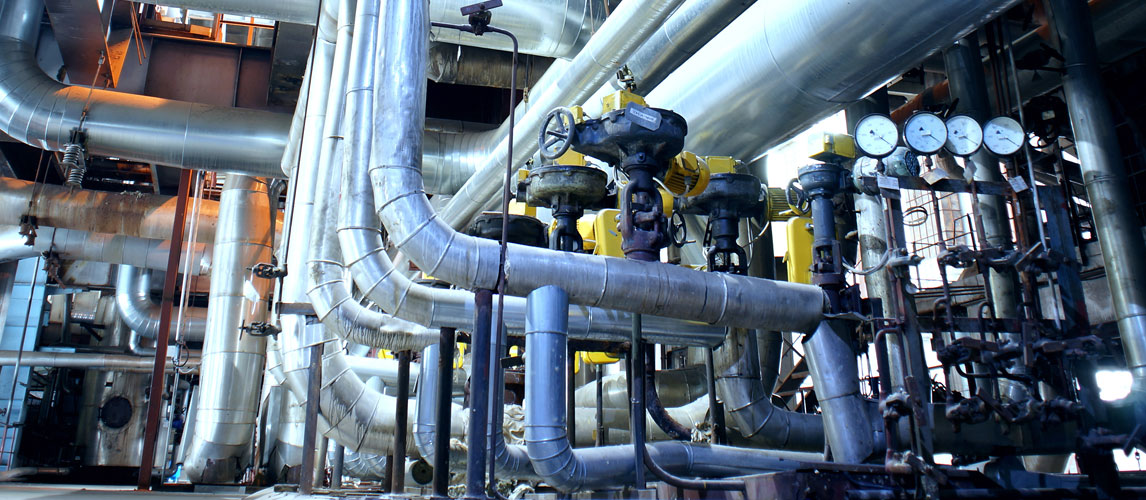

By the end of this course, participants will be able to:
• Apply piping system codes and standards
• Determine line sizing and layout of piping systems
• in various types of facilities
• Specify proper components for process and utility
• applications
• Compare alternative materials of construction
• Ilustrate the process of steelmaking, pipe
• manufacturing and material specifications
• Use joining methods and inspection techniques
• Identify key considerations for flare and vent
• systems, including PSV sizing
Mechanical engineers, facilities engineers, plant engineers, pipeline engineers, draftsmen and piping system designers who are involved in the design of in plant piping systems for oil and gas facilities
• Lectures
• Workshop & Work Presentation
• Case Studies and Practical Exercise
• Videos and General Discussions
Basics of Pipeline Engineering
• Steels used for Line pipe
• Mechanical Properties, Grades and Chemical
• Composition of materials
• Material Properties for FFS assessment ·
• Strength Parameters
• Yield and Tensile strength
• Flow Stress
• Stress-Strain relationship
• Physical properties
• Elastic Modulus
• Poisson's Rao
• Coefficient of Thermal expansion
• Fatigue Toughness
• Fracture Toughness Parameters
• Low bound fracture Toughness
• Charpy V-Notch data
• Fracture Toughness for in-service materials
• Temper Embrittlement
• Pipeline Welding and Manufacturing Techniques
- Seamless, Longitudinal Welded,
• RW, Spiral
• Methods for Improving Corrosion Resistance
• Internally Clad Pipe
• Latest Materials Developments
Pipeline Design
• Pipeline Codes and Standards
• Legislation and Regulations
• Design Process
• Detailed design:
• Product categorization
• Locating pipelines
• Design pressures, factors, and stressing
• Pipeline Crossings
• Pipeline Valves
• Surges/overpressures
• Bends
• Pipe protection
• Fracture control\ Fluids and Hydraulics
Pipeline Route Alignment Considerations
• Basics of routing
• Classification schemes
• Easements and rights of way
• Legislation and permits
• Routing methodologies
Pipeline Welding
• Basics of Welding
• Types of Welding Processes
• Effects on Line pipe of the Welding Process
• Welding Procedures
• Inspection of Welds
• Local Thin area assessment / Material Loss
• calculations
Internal Pipeline Corrosion
• Why Pipes Corrode
• Sweet Corrosion, Sour Corrosion,
• Microbiological Corrosion
• Cracking Mechanisms
• Calculating Corrosion Rates
• Effect of Flow on Corrosion
• Water Injection Pipelines
Monitoring of Internal Pipeline Corrosion
• Corrosion and Internal Failure Mechanism
• Inhibiton of Corrosion
• Biocide Treatment of Pipelines
• Monitoring Internal Corrosion
• Supplementary Inspection Techniques
Pipeline Testing, Operation, Inspection
• Pressure Testing
• Batching
• Incorrect operation
• Control Systems, Leak Detection
• Inspection and monitoring of operational
• pipelines
External Pipeline Corrosion and its Prevention
• External Corrosion in Soils
• Coatings and their Application
• Field Joints
• Interaction of Coatings and Cathodic Protection
Cathodic Protection
• How Cathodic Protection Works
• Monitoring of CP at Test Points
• Full Line Surveys with CIPS and Instant Off
• Surveys
• Coating Surveys using Pearson and DCVG
• Techniques
• Interference from Third Party Lines and DC/AC
• systems
Metal Loss
• General Metal Loss due to Corrosion and/or
• Erosion
• Localized Metal Loss due to Corrosion and/or
• Erosion
• Surface Connected Cracking
• Subsurface Cracking and Micro fissuring/Micro
• void Formation
• Metallurgical Changes
• In-Service deterioration and damage
Crack Growth
• Categories of Crack Growth
• Crack Initiation
• Creep Crack Growth
• Creep Rupture
• Creep Strain-Rate Data
Utility and Intelligent (Smart) Pig Inspection
• The History of Internal Inspection
• Why ‘Pig’? · Types of Pig
• The History of Internal Inspection
• Why ‘Pig’?
• Types of Pig
• Intelligent (Smart) Pigs:
• Metal loss (MFL, UT)
• Geometry
• Mapping
• Crack detection
• What do they find and how accurate are they?
Leak detection / Pipeline Integrity Management
• Risk and risk analysis
• Integrity management methods:
• API 1160
• ASME B31.8S
• Types of pipelines with respect to their functions
• (purposes)
• The transportation of natural gas
• Pipeline components
• Pipes and pipe supports
• Pipe specifications
• Pipe end connections
• Pipeline supports
• Steel pipe specifications
• Pipeline valves
• The pipeline design steps
• Selection of pipeline route
• Pipeline sizing (diameter of the pipeline form certain capacity / flow rate)
• Pipeline supports
• Pipeline pumping/compression stations
• Pipeline components: The required technical
• specification for vendors
• Pipeline construction
• Pipeline pressure test and commissioning
• Pipeline coating & Cathodic protection system
• Pipeline preservation
• Pipeline start-up / operational problems
• Pigging process: Why & how?
Accreditation:
CDGA attendance certificate will be issued to all attendees completing a minimum of 75% of the total course duration
| Code | Date | Venue | Fees | Register |
|---|---|---|---|---|
| ME182-02 | 15-06-2026 | Kuala-Lumpur | USD 5950 | |
| ME182-03 | 20-09-2026 | Manama | USD 5450 | |
| ME182-04 | 06-12-2026 | Jeddah | USD 5450 |
Providing services with a high quality that are satisfying the requirements
Appling the specifications and legalizations to ensure the quality of service.
Best utilization of resources for continually improving the business activities.
CDGA keen to selects highly technical instructors based on professional field experience
Since CDGA was established, it considered a training partner for world class oil & gas institution
3012, Block 3, 30 Euro Business Park, Little Island, Co. Cork, T45 V220, Ireland
Mon to Fri 09:00 AM to 06:00 PM
Contact Us anytime!
Request Info